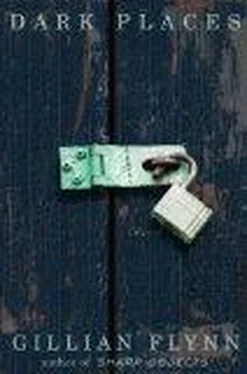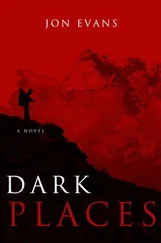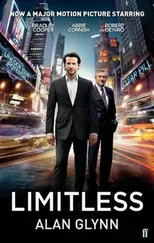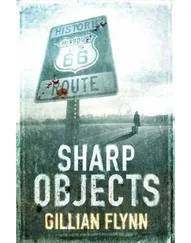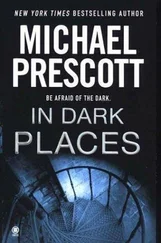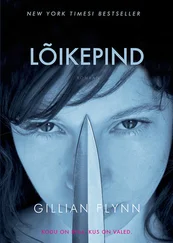Gillian Flynn - Dark Places
Здесь есть возможность читать онлайн «Gillian Flynn - Dark Places» весь текст электронной книги совершенно бесплатно (целиком полную версию без сокращений). В некоторых случаях можно слушать аудио, скачать через торрент в формате fb2 и присутствует краткое содержание. Жанр: Старинная литература, на русском языке. Описание произведения, (предисловие) а так же отзывы посетителей доступны на портале библиотеки ЛибКат.
- Название:Dark Places
- Автор:
- Жанр:
- Год:неизвестен
- ISBN:нет данных
- Рейтинг книги:5 / 5. Голосов: 1
-
Избранное:Добавить в избранное
- Отзывы:
-
Ваша оценка:
- 100
- 1
- 2
- 3
- 4
- 5
Dark Places: краткое содержание, описание и аннотация
Предлагаем к чтению аннотацию, описание, краткое содержание или предисловие (зависит от того, что написал сам автор книги «Dark Places»). Если вы не нашли необходимую информацию о книге — напишите в комментариях, мы постараемся отыскать её.
Dark Places — читать онлайн бесплатно полную книгу (весь текст) целиком
Ниже представлен текст книги, разбитый по страницам. Система сохранения места последней прочитанной страницы, позволяет с удобством читать онлайн бесплатно книгу «Dark Places», без необходимости каждый раз заново искать на чём Вы остановились. Поставьте закладку, и сможете в любой момент перейти на страницу, на которой закончили чтение.
Интервал:
Закладка:
Patty Day JANUARY 2, 1985
9:42 A.M.
The sink was stained a sludgy purple from where Ben had dyed his hair. Sometime in the night, then, he’d locked himself in the bathroom, sat down on the closed toilet seat, and read through the instructions on the carton of hair color she’d found in the trash. The carton had a photograph of a woman with light pink lips and jet-black hair, worn in a pageboy. She wondered if he’d stolen it. She couldn’t imagine Ben, chin-to-chest Ben, setting a dye kit on the checkout counter. So he’d shoplifted it. Then in the middle of the night, her son, all by himself, had measured and combined and lathered. He’d sat with that mudpile of chemicals on his red hair and waited.
The whole idea made her incredibly sad. That in this house of women, her boy had colored his hair in the night by himself. Obviously, it was silly to think he’d have asked her for help, but to do such a thing without an accomplice seemed so lonely. Patty’s older sister, Diane, had pierced Patty’s ears in this bathroom two decades ago. Patty heated a safety pin with a cheap lighter and Diane sliced a potato in half and stuck its cold, wet face against the back of Patty’s ear. They froze her lobe with an ice cube, and Diane— hold still, hold stillllll —jabbed that pin into Patty’s rubbery flesh. Why did they need the potato? For aim or something. Patty had chickened out after the first ear, had plopped down on the side of the bathtub, the lancet of the pin still sticking out the lobe. Diane, intense and un-budging in a mountainous wool nightgown, closed in on her with another hot pin.
“It’ll be over in a second, you can’t do just one, P.”
Diane, the doer. Jobs were not to be abandoned, not for weather, or laziness, or a throbbing ear, melted ice, and a scaredy kid sister.
Patty twirled her gold studs. The left one was off-center, her fault for squirming at the last minute. Still, there they were, twin markers of teenage brio, and she’d done it with her sister, just like she’d first applied lipstick or hooked elastic clips to sanitary napkins the size of a diaper, circa 1965. Some things were not meant to be done alone.
She poured Comet into the sink and started scrubbing, the water turning an inky green. Diane would be by soon. She always dropped in midweek if she was “in her car,” which was her way of making the thirty-mile drive out to the farm seem like just part of a day’s errands. Diane would make fun of this latest Ben saga. When Patty was worried about school, teachers, the farm, Ben, her marriage, the kids, the farm (after 1980, it was always, always, always the farm), it was Diane she craved, like a stiff drink. Diane, sitting in a lawn chair in their garage, smoking a series of cigarettes, would pronounce Patty a dope, would tell her to lighten up. Worries find you easily enough without inviting them. With Diane, worries were almost physical beings, leachy creatures with latchhooks for fingers, meant to be vanquished immediately. Diane didn’t worry, that was for less hearty women.
But Patty couldn’t lighten up. Ben had gone so remote this past year, turned himself into this strange, tense kid who walled himself into his room, kicking around to music that rattled the walls, the belchy, screaming words seeping out from under his door. Alarming words. She’d not bothered to listen at first, the music itself was so ugly, so frantic, but one day she’d come home early from town, Ben thinking no one was home, and she’d stood outside his door and heard the bellows: I am no more,
I am undone,
the Devil took my soul,
now I’m Satan’s son .
The record skipped and again came the coarse chant: I am no more, I am undone, the Devil took my soul, now I’m Satan’s son.
And again. And then again. And Patty realized Ben was just standing over his record player, picking up the needle and playing the words over and over, like a prayer.
It was Diane she wanted here. Now. Diane, settled down on the couch like a friendly bear in one of her three old flannel shirts, now chewing a series of nicotine gums, would talk about the time Patty came home in a minidress and their folks actually gasped, as if she were a lost cause. “And you weren’t, were you? You were just a kid. So is he.” And Diane would snap her fingers like it was that simple.
The girls were hovering outside the bathroom door—they’d be out there when she emerged, waiting. They knew from Patty’s scrubbing and mutterings that something further had gone wrong, and they were trying to decide if this was a situation for tears or recrimination. When Patty cried, it invariably set off at least two of her girls, and if someone got in trouble, the house got windy with blame. The Day women were the definition of mob mentality. And here they were on a farm with plenty of pitchforks.
She rinsed her hands, chapped, red and hard, and glanced at herself in the mirror, making sure her eyes weren’t wet. She was thirty-two but looked a decade older. Her forehead was creased like a child’s paper fan, and crow’s feet rayed out from her eyes. Her red hair was shot with white, wiry threads, and she was unattractively thin, all bumps and points, like she’d swallowed a shelf’s worth of hardware: hammers and mothballs and a few old bottles. She did not look like the kind of person you’d want to hug, and, in fact, her children never snuggled into her. Michelle liked to brush her hair (impatiently and aggressively, the way Michelle did most things) and Debby leaned into her whenever they were both standing (loosely and distractedly, as was Debby’s way). Poor Libby tended not to touch her at all, unless she was really hurt, and that made sense, too. Patty’s body had been so used up that by her mid-twenties even her nipples were knobby; she’d bottle-fed Libby almost immediately.
There was no medicine cabinet in the cramped bathroom (what would she do when the girls hit high school, one bathroom for four women, and where would Ben be? She had a quick, miserable image of him in some motel room, all by himself in a boy-mess of stained towels and spoiled milk), so she kept a small cluster of toiletries stacked along the sink. Ben had shoved all the containers into one corner—aerosol deodorant and hairspray, a midget can of baby powder she didn’t remember buying. They were now splattered with the same violet stain that dirtied her sink. She wiped them down like they were china. Patty wasn’t ready for another trip to the department store. She’d driven to Salina a month ago in a positive, bright mood to pick up some prettifying items: cream rinse, face lotion, lipstick. She had folded a $20 bill in her front pocket just for the trip. A splurge. But the sheer amount of options in face cream alone— hydrating, wrinkle-fighting, sun-thwarting—had overwhelmed her. You could buy one moisturizer, but then you had to get a matching cleanser, too, and something called toner, and before you were even ready for the night cream, you’d have blown fifty bucks. She’d left the store with nothing, feeling chastened and foolish.
“You’ve got four kids—no one expects you to look like a daisy,” was Diane’s response.
But she wanted to look like a daisy every now and then. Months back, Runner had returned, just dropped out of the sky with a tan face and blue eyes and stories of fishing boats in Alaska and the race circuit in Florida. He’d stood on her doorstep, lanky in dirty jeans, with not even a wink about the fact they hadn’t heard from him in three years, hadn’t gotten any money from him. He asked if he could board with them til he got settled—naturally he was broke, although he handed Debby half a warm Coke he’d been drinking as if it were a wonderful gift. Runner swore he’d fix things up around the farm and keep it all platonic, if she wanted . It was summer then, and she let him sleep on the couch, where the girls would run to him in the morning as he lay sprawled and stinky in torn boxers, his balls half out.
Читать дальшеИнтервал:
Закладка:
Похожие книги на «Dark Places»
Представляем Вашему вниманию похожие книги на «Dark Places» списком для выбора. Мы отобрали схожую по названию и смыслу литературу в надежде предоставить читателям больше вариантов отыскать новые, интересные, ещё непрочитанные произведения.
Обсуждение, отзывы о книге «Dark Places» и просто собственные мнения читателей. Оставьте ваши комментарии, напишите, что Вы думаете о произведении, его смысле или главных героях. Укажите что конкретно понравилось, а что нет, и почему Вы так считаете.
